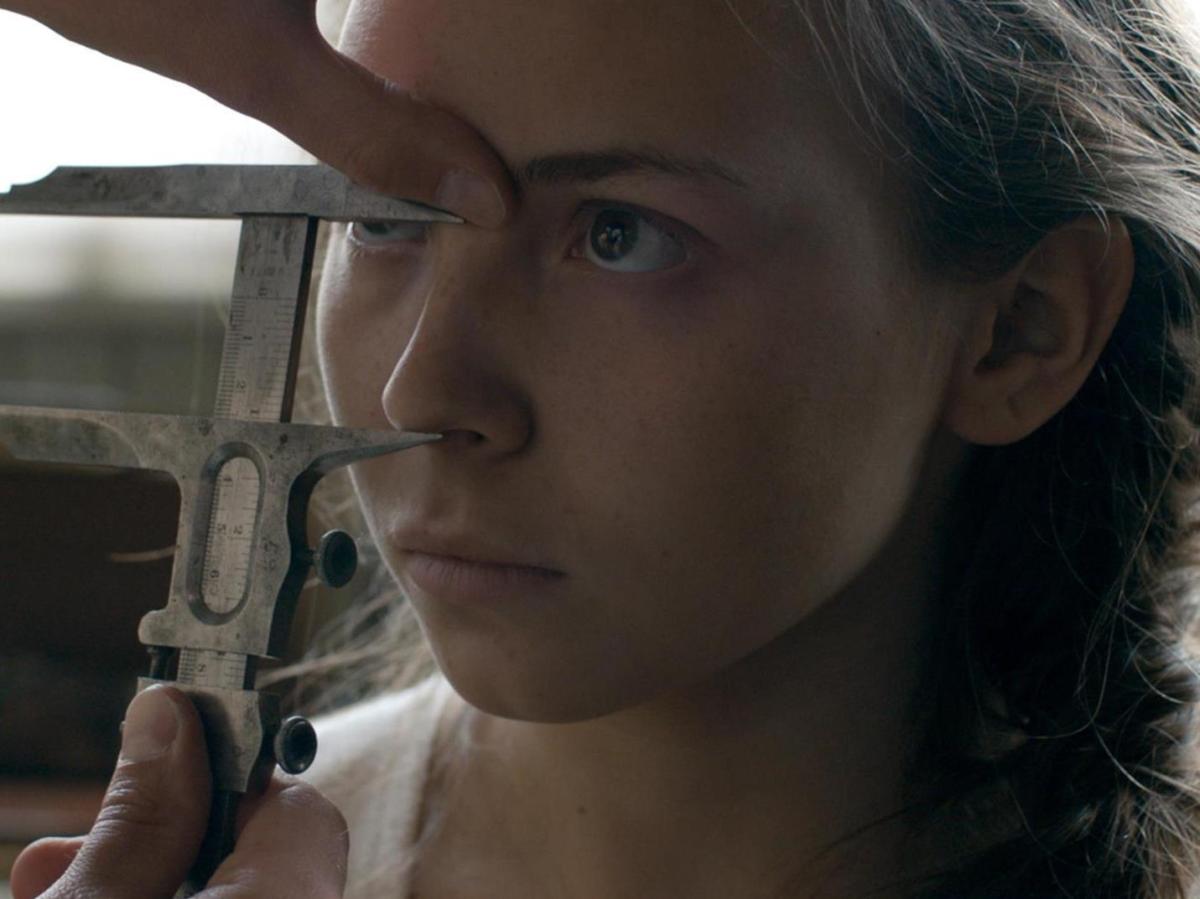There’s no elegant, dignified or sensitive way for a teenage girl to be handled like a specimen — or an animal. When Elle-Marja (debutant Lene Cecilia Sparrok) and her classmates are paraded like cattle in front of visiting officials, then measured, catalogued and photographed alone behind closed doors, discomfort seeps from the screen, including that of writer/director Amanda Kernell. Sami Blood (Sameblod) can’t redress the wrongs depicted in its frames, or the other mistreatment of Sweden’s indigenous Sami populace; however it can offer an insight into the under-represented group with grace and compassion. Drawing its details from Kernell’s own heritage, and partially taking inspiration from her grandmother’s plight as well, the film provides a rousing and affecting exploration of the consequences of coming of age while trying to overcome cultural prejudice and oppression.
At the age of 14, reindeer herder Elle-Marja stands at a familiar junction, though her grappling with adolescence’s waning days and maturity’s twinkling bright lights is complicated by her background. Sent off to a Sami-only boarding school with her younger sister Njenna (Sparrok’s own sibling Mia Erika), being poked, prodded, taunted and teased soon instils an eagerness to leave her marginalised upbringing behind. Merciless bulling from non-Sami boys, an instant attraction to the visiting Niklas (Julius Fleischanderl), and her wish to pursue further education and opportunities only hastens her determination to forge a different identity.
As an account of a girl victimised into conformity and abandoning her culture, Elle-Marja’s story seethes with tragedy. Harsh encounters abound at the hands of her peers, teachers and the community at large, but the emotional toll of struggling against the restrictive forces cuts just as deep. Kernell doesn’t paint her protagonist as a martyr, traitor or hero — rather, she’s a young woman opting for the only path that could provide an easier life. With the narrative bookended by scenes of the much older Elle-Marja (Maj-Doris Rimpi) returning to Lapland to attend her estranged sister’s funeral, the film makes plain the full extent of lifelong pain that came with that decision.
Cue an effort that relays rather than judges where its central character is concerned, conveying her tale with both care and beauty, even when rampant callousness swarms around her. With cinematographers Sophia Olsson (At Home in the World) and Petrus Sjövik (The Model), Kernell doesn’t shy away from the allure of standard teenage life, or from the splendour of Elle-Marja’s childhood surroundings; in fact, when their lyrical images depict acts of cruelty and maliciousness, the clash of poetic visuals and brutal deeds makes a noticeable statement. The feature’s approach deftly mirrors its core battle of cultures, with the peaceful and naturalistic intruded upon by the brash and imposing. From start to finish, Sami Blood proves attuned to the ways in which confrontation and unpleasantness can blight otherwise calm and happy situations — sometimes violently, sometimes quietly and insidiously.
Of course, Sami Blood also proves cognisant of the universal nature of its story, breeding insights springing from but not tied to its particular locale. Indeed, though specific in its details — and eye-opening in exposing the suffering of the Sami people to a wider audience — the feature remains broad in its relevance. Accordingly, it’s impossible not to see parallels with every other nation guilty of the same behaviour against their own indigenous folks, giving the movie extra emotional resonance. Paired with poised turns by both Lene Cecilia Sparrok and Rimpi, the end result is composed and compelling in its many forms: as a snapshot of Scandi cultural conflict; as a character study of a girl finding her way in an unkind world; and as a far-reaching dissection of the impact of colonialism, and the isolation and assimilation it causes.
Rating: 4 stars out of 5
Sami Blood
Director: Amanda Kernell
Sweden, 2016, 110 mins
Scandinavian Film Festival
scandinavianfilmfestival.com
Sydney: 11 July – 2 August 2017
Melbourne: 13 July – 2 August 2017
Canberra: 18 July – 2 August 2017
Adelaide: 19 – 30 July 2017
Brisbane: 20 July – 6 August 2017
Brisbane: 20 July – 2 August 2017
Hobart: 20 – 26 July 2017
Melbourne International Film Festival
miff.com.au
3 – 20 August 2017
Actors:
Director:
Format:
Country:
Release:





